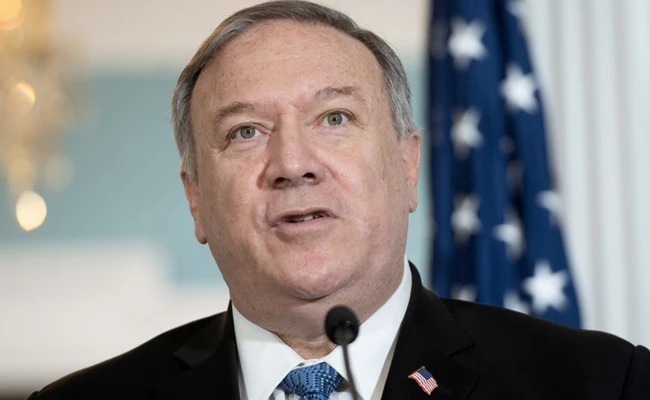| Translate This News In |
|---|
Former US Secretary of State Mike Pompeo described Ashraf Ghani, the former Afghan President who fled the country when the Taliban seized power in Kabul, as a “total fraud” solely focused on his own desire to remain in power and a major impediment to any peace talks.
Pompeo claims in his book, ‘Never Give an Inch: Fighting for the America I Love,’ that both Ghani and Afghanistan’s former chief executive Abdullah Abdullah were involved in corruption at the highest levels, limiting the US’ ability to successfully exit the war-torn country in August 2021.
On August 31, the United States completed its 20-year military presence in Afghanistan.
Ghani was always a source of contention as the negotiations progressed. I met dozens of world leaders, and he was my least favorite. That’s saying a lot when you consider Kim (Jong-un), Xi (Jinping), and (Vladimir) Putin are all involved. “Yet Ghani was a total fraud who had wasted American lives and was focused solely on his own desire to remain in power,” Pompeo writes in his book, which was released this week.
“Never once did I sense that he was prepared to take a risk for his country that might imperil his power. “This disgusted me,” he writes in the book, which details the negotiations between the previous US administration, led by ex-President Donald Trump, and the Taliban group.
Former diplomat Zalmay Khalilzad was appointed by the Trump administration as the special envoy for talks with the Taliban.
Pompeo claims that Ghani was re-elected primarily due to massive electoral fraud.
“According to the final nominal tally, Ghani had defeated the country’s chief executive, Abdullah Abdullah. But the truth was that Ghani simply bribed more voters and vote counters than the other candidates “writes the former Secretary of State.
According to Pompeo, both Ghani and Abdullah were fighting over who would be the next president without regard for whether or not Afghanistan would have a government to lead.
On March 23, 2020, I flew to Afghanistan at General Miller’s request to inform the Afghan government that they had to find a solution or I would advise President Trump to leave the country as soon as possible, starting with the termination of the approximately USD 5–6 billion in annual foreign aid that we were giving at the time.
Pompeo said that this was a genuine threat.
The aid’s greater goal was to maintain civil order, although the public virtually always focused on how it helped with security. It provided money for healthcare and education, but it also allowed local officials to “walk around money.” This is a euphemism for bribery, and it reflects the dismal truth of how Afghan society and American aid operated, the speaker stated.
They paid attention to my message. In order to prove that we weren’t kidding, we eventually reduced the amount of aid by USD 1 billion. We at least had a head of the Afghan government by May, when Abdullah practically handed Ghani control, the man claimed.
After joining the Trump administration, Pompeo claimed that he had come to the conclusion that Afghanistan’s low-level corruption had contributed to some degree of stability by preventing the country from disintegrating altogether, albeit at a staggering cost to the credibility of the government among its own citizens.
In actuality, both Abdullah Abdullah, the president of Afghanistan, and President Ashraf Ghani were cartel leaders who siphoned off millions of dollars in American help. Our ability to successfully leave was hindered by the greatest levels of corruption, said Pompeo.
He claimed that despite his eloquence and attractiveness, Ghani was not the head of a tribal nation that was severely divided and in the midst of a conflict and trying to establish the necessary democratic institutions.
He lacked political instincts and acted like a manager in the Brussels school of management in a violent environment that demanded an Ultimate Fighting Championship mentality. Additionally, he didn’t hold much respect from Afghan commanders, practically all of whom had spent their adult lives engaged in combat, according to Pompeo.
Ghani asserts that his time spent living in the West had made him an expert in manipulating American lawmakers and nonprofit organizations.
He lavished money on lobbyists as well. Ghani had, I don’t think I’m exaggerating, more friends in the District of Columbia than he did in Afghanistan. During my stint as a CIA agent, I met him for the first time and told him straight up: “You’re wasting your time on K Street and Capitol Hill when you should be pushing for allies in Herat and Mazar-e-Sharif,” Pompeo wrote.
Ghani, who has been living in exile in the United Arab Emirates since the Taliban seized control of the Afghan capital Kabul on August 15, 2021, has in the past passionately justified his decision to quit the war-torn nation, claiming he did so to stop the Taliban from committing any more “bloodshed.”


















